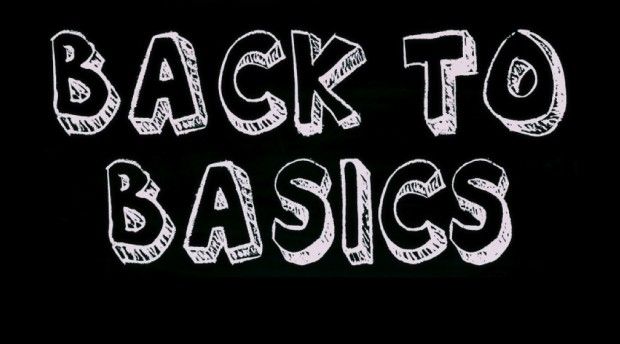Can Graduate School Help You Get Ahead?
Post Views 2Thinking about seeking shelter in graduate school from the harsh job market? You might want to think again, say career counselors and graduate-school admissions officers. Having lousy employment prospects is a poor reason to enroll in a master’s degree program, and it could be a waste of time and money if it doesn’t help further your career goals.
University of Rhode Island senior Nicole Hanover is among those headed to grad school without a firm commitment to their field of study. She’ll be attending law school this fall even though she’s undecided whether to be a lawyer or a newspaper editor. “My friends are stressed out about trying to find jobs, but I’m excited knowing that I won’t have to face the same problems as them for another three years,” she says. “Hopefully by then, the economy will have improved.”
Having a graduate degree won’t necessarily bolster your chances of landing your dream job, says Kelley Best, a career services director. “Your success at getting hired will depend on what requirements an employer considers necessary for a position, and in many cases, a master’s degree isn’t deemed essential,” he says.
Earning a master’s degree in modern English literature from the University of London didn’t help 28-year-old Robyn Fulbright break into the editorial side of the book-publishing industry. “I thought the degree would give me an advantage, but what I didn’t realize was that in publishing, everyone needs to start at the bottom,” she says. Previously, Fulbright worked as a premium sales assistant for publisher Penguin Putnam in New York City for two years after graduating from college. Now Fulbright is back in a sales position, this time at another New York City book publisher. “Going to graduate school didn’t help at all in terms of my career, but I don’t regret it because I enjoyed living in a different country,” she says.
Should You Go?
To determine if graduate school might benefit your career, ask professionals in the job you want about the skills and knowledge they needed to get there and how they developed them, says Ann Stevens a business school career services dean. “Don’t be afraid to pick up the phone and call a person even if you don’t know them,” she suggests. “Professionals are almost always willing to talk about themselves, and they’re even more willing to help young people make good decisions about their future careers.”
New York University senior Hillary Pell did some research to determine if the employers she’s targeting favor candidates with graduate degrees. The English major is seeking an entry-level position with a book publisher. “I spoke with a lot of editors whom I interned for and most said that I’d still have to start working at the entry level even if I got a master’s degree,” she says. “It seems that going to graduate school would just put me behind by two years.”
Pell is still considering graduate school as a fallback option in case she doesn’t land a job. She’s been accepted into her alma mater’s English literature program and is waiting until the school’s deadline for enrollment in April to make a final decision. Meanwhile, she’s gone on several interviews with publishing firms, including Random House in New York, but hasn’t received any offers.
Jeffrey Eisen, a senior at Northeastern University in Boston, learned that he’d need a master’s degree to reach his career goal: to be either a teacher or researcher in environmental engineering. “College provided me with just a general education in chemical engineering. I think graduate school will open up a whole new scope of knowledge for me,” he says. Eisen has been accepted to four master’s programs and is leaning toward Carnegie Mellon University in Pittsburgh.
Is Work Experience Necessary?
Dodging the ugly job market likely won’t be an option for seniors with sights set on an M.B.A. While most academic programs, such as history or English, generally don’t require work experience, many business-school programs prefer candidates who’ve worked for at least a year. “The exception might be if a student worked professional jobs during the summers or did several internships,” says McGill.
Work experience also can help prospective students make better choices in what to study. After graduating from Tufts University in Medford, Mass., in 2012, drama major Michaela Keller worked as a budget coordinator for student activities at her alma mater. Three years later she moved into an analyst position at a consulting firm in Waltham, Mass., and an interest in marketing blossomed.
Recognizing that she lacked basic business skills, Keller enrolled in business schoo1, choosing a concentration in marketing, general management and economics. She now plans to pursue a career combining drama and business, perhaps as a theater manager or in a theater’s marketing department. “It took a few years of work to allow me to really decide on a career direction and recognize how an M.B.A. might help me in pursuing my career,” she says.
Can Graduate School Help You Get Ahead? by Harrison Barnes



 Who Can Help My Career? All of the People on This List
Who Can Help My Career? All of the People on This List  Top 5 Questions You Must Ask During Your Next Review
Top 5 Questions You Must Ask During Your Next Review  11 Career Mistakes You Won’t Repeat
11 Career Mistakes You Won’t Repeat  Happy 2010!
Happy 2010!  Benefits of Sales 101
Benefits of Sales 101  Changing Careers in Your 30s and 40s
Changing Careers in Your 30s and 40s  Job Relocation Costs: It Often Costs Much More than You Think to Pick Up and Leave
Job Relocation Costs: It Often Costs Much More than You Think to Pick Up and Leave  Five Traits You Need to Be a Leader
Five Traits You Need to Be a Leader